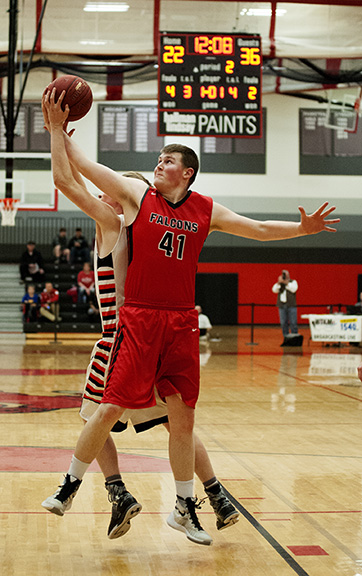Why reliable stat keepers are critical to programs
Give greater attention to one of the most important jobs on your team

It’s also the job that can determine what you do in practice, and it’s the job every program should have, but many don’t.
The most important job in your program is the stats keeper.Whether a coach or manager maintains them, just one person alone cannot track statistics. You need to have eyes on the court at all times, and when one person performs this job they often miss what’s happening on the floor because they constantly have to look down to write. That’s why it’s a minimum two-person job.
While one writes the other is watching incase something happens, like a turnover, shot, steal or deflection. Player productivity can be shown through stats. If a player or parent wants to know why they may not be receiving the playing time they want, you can show them the statistics.
A good coach designs his or her practice plans based on the stat sheets. If your team is struggling in a particular area, then that’s the area you should be working on the most. A great coach has stats taken at practice to see who is doing their job. Practice is the game, and the game is execution.
Like them or not, stats gives you some guidance to a player’s consistency on the court.
Every high school program should have a paid trained stat keeper, and that person should have an assistant, whether it be a team manager, intern or volunteer. Not having the right person can conflict not only in your program but also for your program. I have seen so many players go unnoticed because the person keeping the stats did not know what they were doing. It is an injustice to the kids or teams who have worked hard to try and achieve goals only to be snubbed because the stat person did them wrong. High school coaches should take the time to find the right qualified person for the job or train someone extensively so they can be prepared. Too many players fly under the radar because their program did not have a good statistician.
If used correctly, statistics add a fine distinction and understanding to what is seen on the court. And because of the realization that certain stats could be used in a limited way to get a player awards, media attention, recognition and scholarships, stats are available in newspapers and on team websites to be collected and interpreted by everyone. Like them or not, stats gives you some guidance to a player’s consistency on the court. They can be interpreted in different ways, but there is no ignoring them. And in today’s sports world, stats have become more important than ever.
The stat sheet is the one thing that can tell you about what an individual player and team is doing and how they have improved or declined over time. The stat sheet tells you about a game without having to watch it. If a team wins or loses, you can often look at the stat sheet and identify the problem. Whether it’s missed shots, turning the ball over, getting out-rebounded or missing free throws, all of these can be gleaned from the stats sheet. The sheet cannot tell you what happened on a particular play or a few possessions during the game, but oftentimes games aren’t won or lost over those situations.
 Just like playing the game itself, keeping statistics is a skill that needs to be developed and worked on. If you have a stats keeper that does not take accurate stats, work with them during the offseason and preseason to get them ready for the regular season. Have them look at film and do stats from those games. Then match their stats up with the stats already taken for that matchup. Also, get them with an AAU or travel team so they can work on their craft.
Just like playing the game itself, keeping statistics is a skill that needs to be developed and worked on. If you have a stats keeper that does not take accurate stats, work with them during the offseason and preseason to get them ready for the regular season. Have them look at film and do stats from those games. Then match their stats up with the stats already taken for that matchup. Also, get them with an AAU or travel team so they can work on their craft.
During the preseason, if you play in fall leagues, have them track statistics. If possible, have them attend statistician clinics. The more they work on their skill, the better they’ll get at it.
Here are 10 things every stat keeper should track:
- Field goals
- 3-point field goals
- Free throws
- Missed layups. It’s where games are won or lost.
- Assists
- Turnovers
- Rebounds
- Deflections/blocks. This lets you know whether your players’ hands are up or down.
- Steals
- Opponent’s offensive rebounds. Keeping track of this can help you determine where the game was lost or who won the rebound battle.
Practice stat sheets can have more items on them such as 50/50 balls, charges (defensive), screens and picks. Coaches need to write what they emphasize the most on their practice stats sheet. If you are defensive minded, add more defensive items, and the same goes if you’re offensive minded.
The most important job in your program is the stats keeper. They’re the person who can help make or break a kid’s season (individual goals), give reality to a player’s game (productivity), give info to a scout or media person (consistency), or give you an idea of how the game progressed and evolved.
The stat keeper is the one coach you can’t go without. Statistics are a reliable source that can tell the full story, which can be used in the future as true measurement of a player’s performance, ability and potential.









